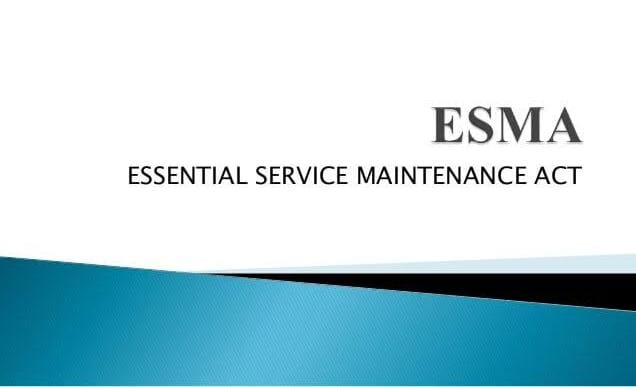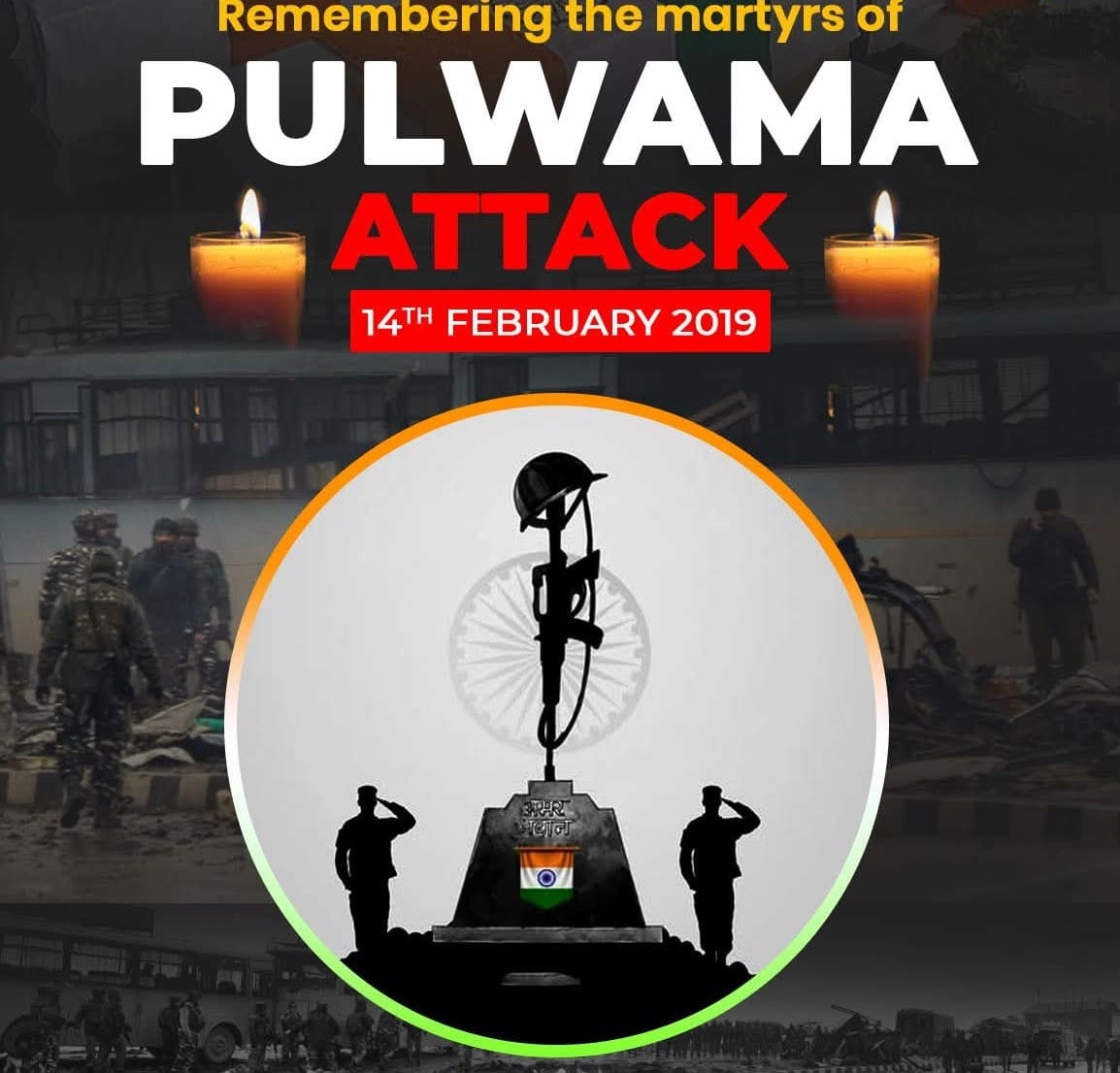Introduction
The smooth functioning of essential public services is crucial for the welfare, safety, and stability of a country. Imagine a city without water for a week, hospitals closed due to a strike, or public transport completely stopped. In such situations, daily life can come to a standstill, and public health or security could be at risk.
In India, to prevent such disruptions, the government has a law called the Essential Services Maintenance Act (ESMA). This act allows the authorities to take strict action against strikes or disruptions in essential services to ensure that public life continues without serious inconvenience.
This article explains what ESMA is, why it exists, how it works, its powers, scope, criticisms, and real-life examples.
What is ESMA?

The Essential Services Maintenance Act is a law in India that empowers the central and state governments to prohibit strikes, lockouts, or slowdowns in certain services that are considered essential for the public.
The aim is not to stop workers’ rights but to ensure that important services like healthcare, electricity, water supply, and public transport continue to function even during disputes between employees and employers.
History and Background
First introduced: 1968, during a time when strikes in key industries and public services were becoming frequent and affecting people’s lives.
Reason for introduction: The government felt that some services were so important that they must not be stopped under any circumstances, even if there are disputes.
Since then, ESMA has been invoked multiple times by both central and state governments whenever strikes have threatened essential services.
Purpose of ESMA
The main objectives of ESMA include:
- Maintain essential services so that public safety and welfare are not disrupted.
- Prevent large-scale inconvenience to people caused by sudden strikes in crucial sectors.
- Ensure national security in cases where essential services are linked to defence or emergency management.
- Balance workers’ rights with the broader public interest.
Essential Services Under ESMA
The law covers services that, if disrupted, can cause hardship to the general public or threaten national security. Some examples include:
- Public transport – Railways, buses, metro services, air traffic control.
- Healthcare services – Hospitals, ambulance services, blood banks, medical laboratories.
- Water supply and sanitation – Drinking water, sewage management, waste disposal.
- Electricity supply – Generation, transmission, and distribution of electricity.
- Telecommunication services – Telephone lines, internet services (especially in emergencies).
- Postal services – Mail delivery, courier operations by government agencies.
- Defence-related industries – Production and supply of weapons, ammunition, and military equipment.
- Firefighting services – Fire brigades and emergency rescue teams.
Note: The list of services covered can change as per government notification.
How ESMA Works
- Declaration of Essential Service
The central or state government first declares a particular service as essential under the law.
- Ban on Strikes or Lockouts
If there is a threat of disruption, the government can issue an order banning strikes, lockouts, or slowdowns in that service for a period (often up to 6 months).
- Penalties for Violation
Employees or unions that violate the ban can face:
Imprisonment (up to 1 year)
Fines (can vary based on the state’s version of ESMA)
Disciplinary action under service rules.
- Compulsory Return to Work
The law allows the government to order workers to return to their jobs immediately, even if they are in the middle of a strike.
Provisions and Powers Under ESMA
- Section for Prohibiting Strikes
Allows the government to declare that no strike can be held in a certain essential service for a specified period.
- Section for Punishment
Anyone who starts, continues, or participates in an illegal strike can face legal action.
- Power to Arrest Without Warrant
In some cases, police can arrest violators without a warrant under ESMA.
- Overrides Other Laws
ESMA can override certain labour laws that normally allow strikes, meaning it has stronger powers during emergencies.
When ESMA Has Been Used
Over the years, ESMA has been invoked in many situations across India. Examples include:
Healthcare sector: When doctors in government hospitals went on strike, state governments have used ESMA to ensure emergency medical services continue.
Transport sector: During public transport strikes in Delhi, Uttar Pradesh, and other states, ESMA was used to bring buses and trains back into operation.
Electricity supply: In some states, ESMA was invoked when electricity workers threatened to cut supply.
Arguments in Favour of ESMA
Supporters of ESMA believe it is necessary because:
- Protects public interest – Ensures that daily life is not severely disrupted.
- Maintains law and order – Prevents chaos during strikes in vital services.
- Supports emergency response – Especially during natural disasters, pandemics, or national security threats.
- Keeps economy stable – Avoids heavy financial losses due to sudden stoppages.
Criticism of ESMA
Despite its importance, ESMA has faced strong criticism from trade unions and worker groups:
- Limits workers’ rights – Many believe it suppresses the right to protest and bargain for better conditions.
- Possibility of misuse – Governments may use ESMA even in situations that are not truly emergencies.
- Does not solve root problems – It forces people back to work but may ignore genuine grievances.
- Fear among employees – Workers may feel threatened and unable to speak up about poor working conditions.
Difference Between Central and State ESMA
Central ESMA: Applies to services under the control of the Union Government (e.g., railways, air traffic control, defence production).
State ESMA: Applies to services under the control of state governments (e.g., local transport, state-run hospitals, water supply).
Each state can have its own version of ESMA with slight variations.
ESMA vs. Other Labour Laws
ESMA is unique because it:
Gives the government extraordinary powers to stop strikes quickly.
Can override normal procedures under laws like the Industrial Disputes Act.
Is meant for short-term emergency situations, not for regular labour disputes.
Impact on Society
The impact of ESMA can be both positive and negative:
Positive:
Prevents breakdown of essential services during crises.
Ensures safety and security for the public.
Maintains stability during emergencies.
Negative:
Can cause resentment among workers.
May reduce trust between employees and the government.
If overused, can create tension in industrial relations.
Suggestions for Improvement
- Use only in real emergencies – Governments should avoid using ESMA in minor disputes.
- Improve negotiation mechanisms – Stronger dialogue between workers and authorities before a strike happens.
- Review essential services list regularly – To ensure it matches current public needs.
- Protect workers’ rights – Combine ESMA with measures that address genuine employee grievances.
Conclusion
The Essential Services Maintenance Act is a powerful legal tool to ensure that essential services keep running even during disputes or strikes. While it plays an important role in protecting the public interest, it must be used with caution to avoid misuse and to maintain a healthy relationship between workers, employers, and the government.
The challenge is to strike the right balance — protecting public welfare while also respecting the rights of workers to voice their demands. Used wisely, ESMA can be a safeguard for society during emergencies. Used carelessly, it can create unnecessary conflict.
Form: Tv10 Punjab




